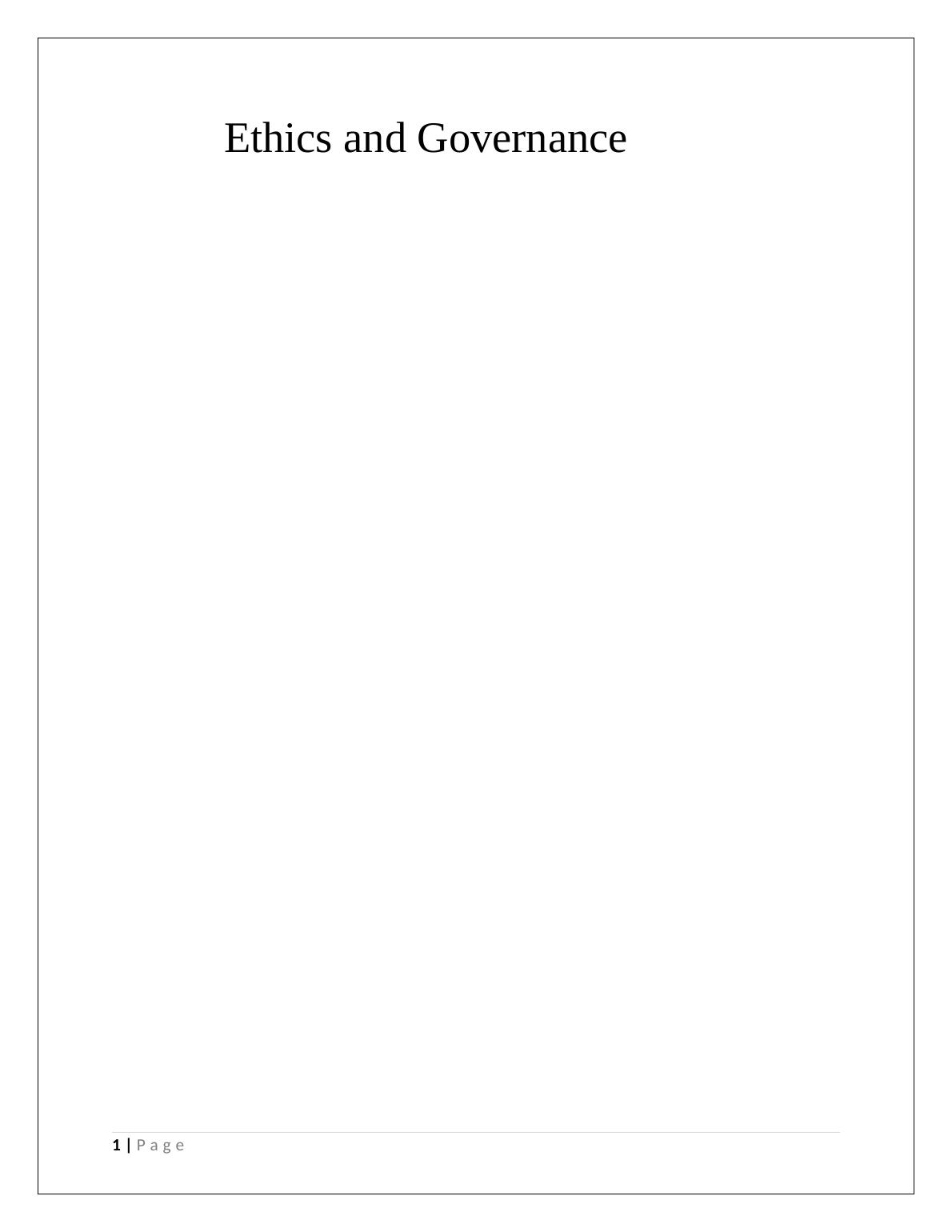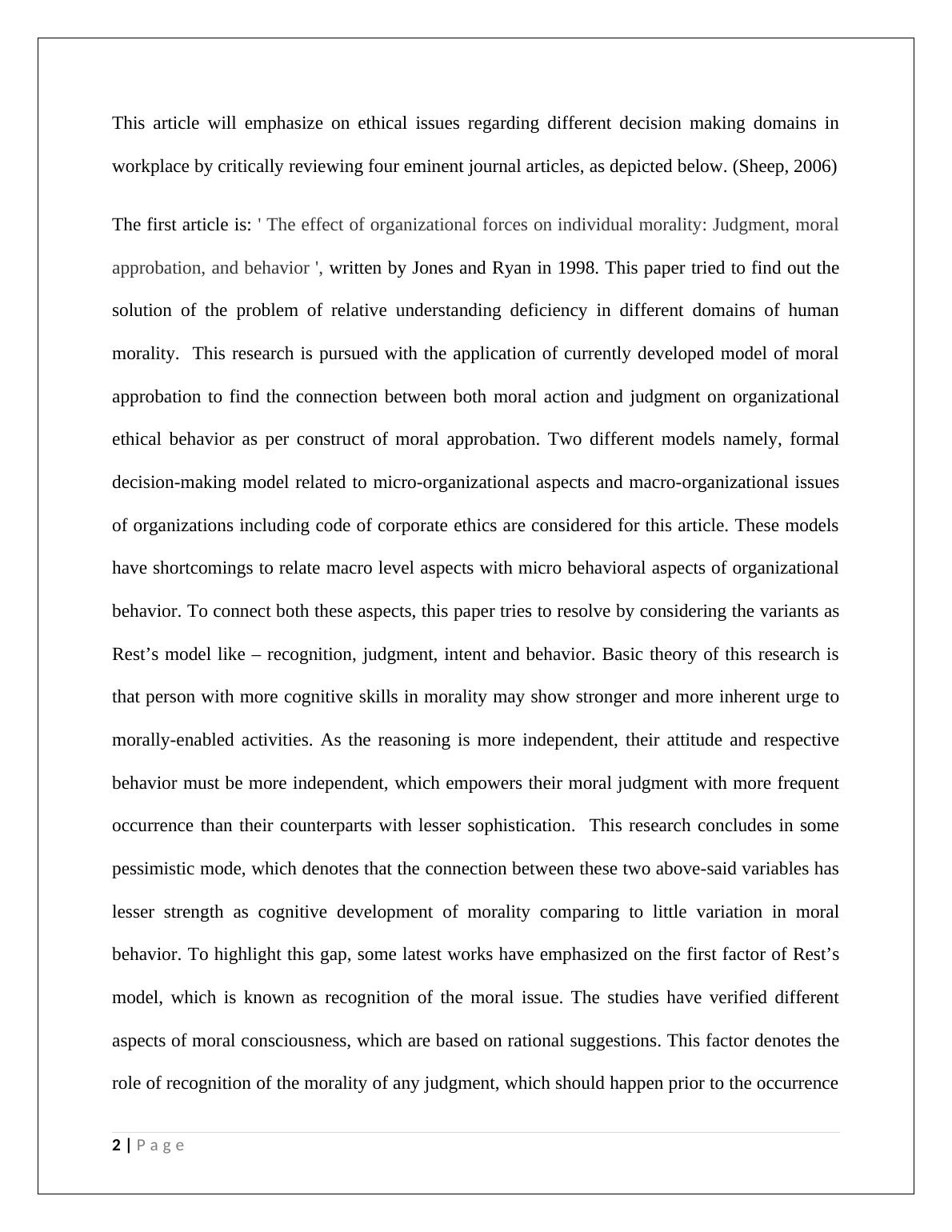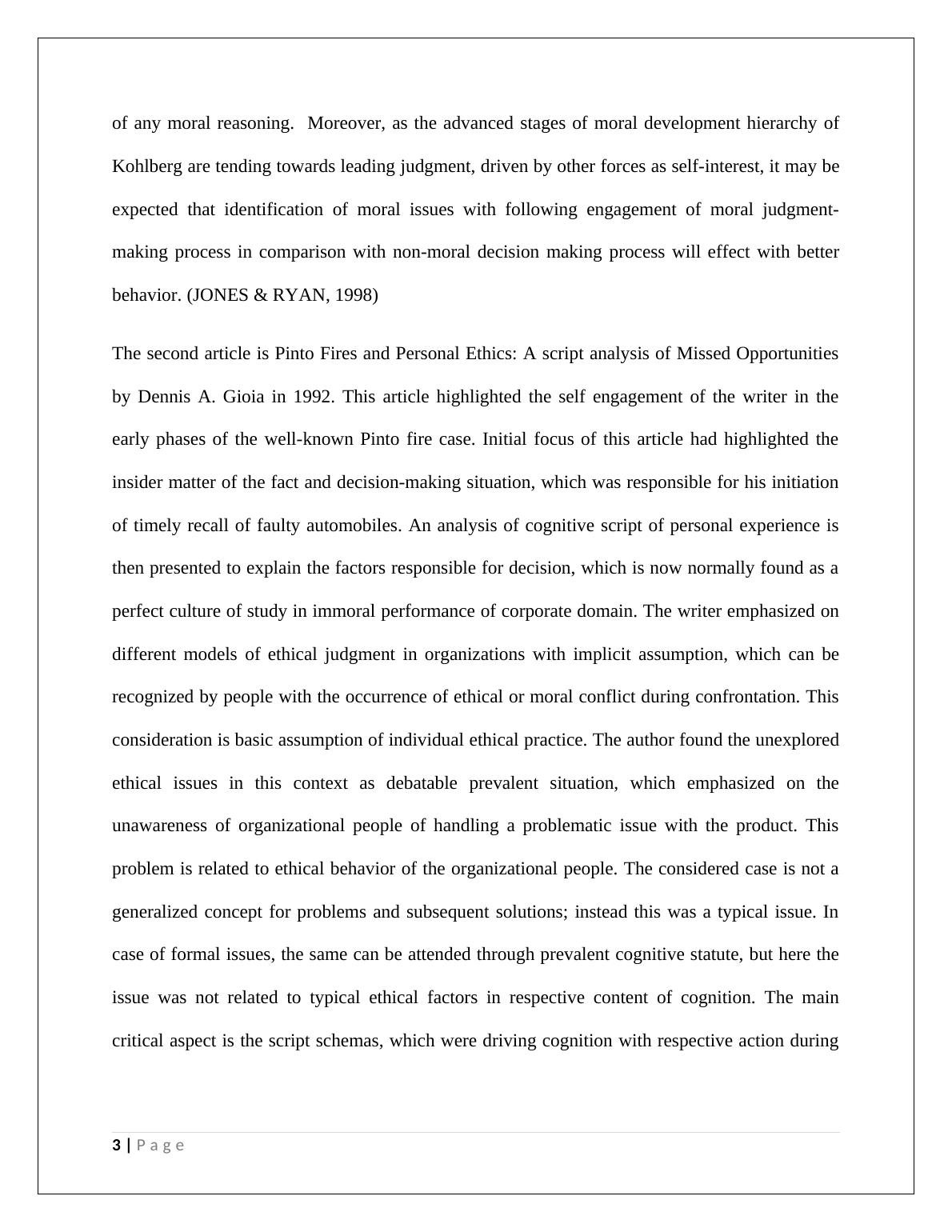Ethics and Governance | Decision Making and Implication
This article examines two starkly different cases—the abuse of prisoners in the Abu Ghraib prison and the falsification of architectural internship reports—in developing a neo-institutional analysis of deviance within organizations.
7 Pages1587 Words20 Views
Added on 2022-07-29
Ethics and Governance | Decision Making and Implication
This article examines two starkly different cases—the abuse of prisoners in the Abu Ghraib prison and the falsification of architectural internship reports—in developing a neo-institutional analysis of deviance within organizations.
Added on 2022-07-29
ShareRelated Documents
End of preview
Want to access all the pages? Upload your documents or become a member.
Corporate Governance and Ethics || Assignment
|6
|1251
|13
THE ETHICS AND GOVERNANCE
|6
|1209
|13



